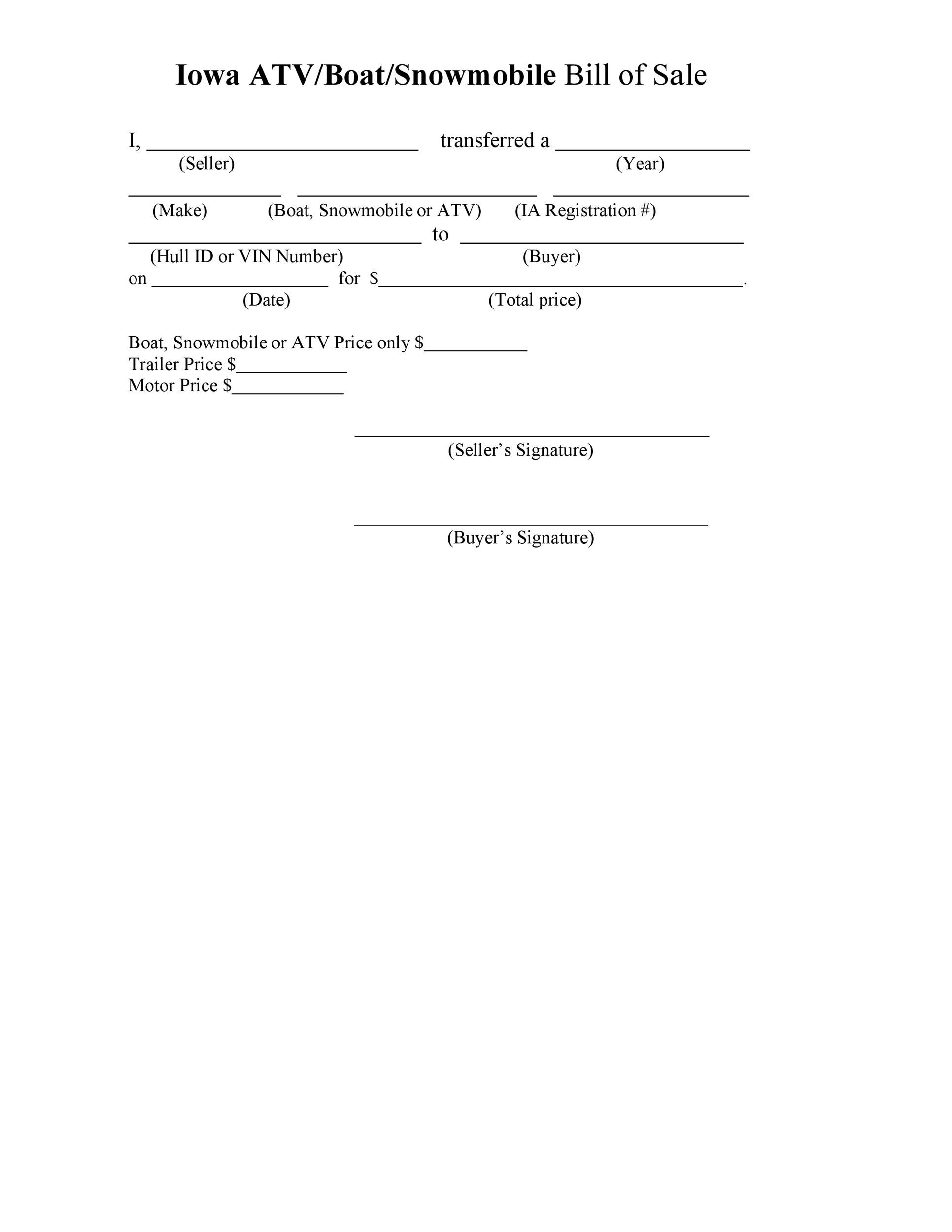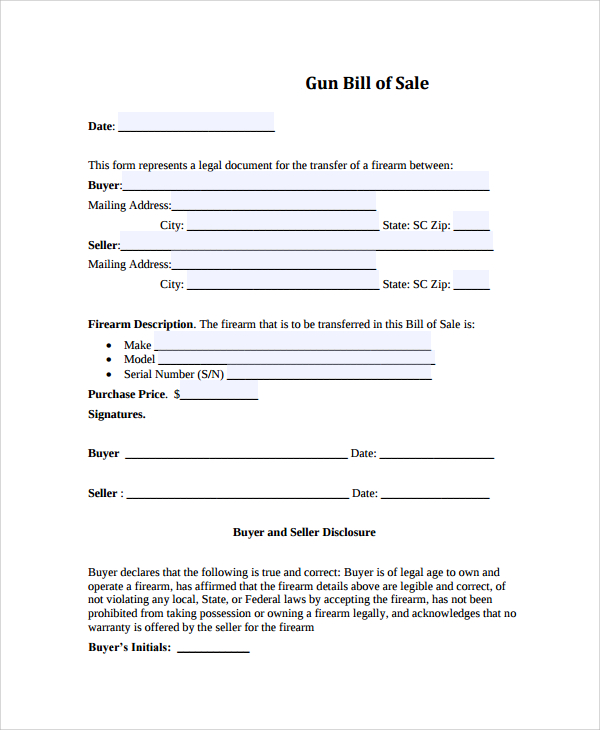

: 48–56 Preemptive action in anticipation of a threat or retribution after the threat has passed are both considered excessive force by the courts. While the Crimes Act 1961 allows a person to use reasonable force to defend oneself or another person against assault or entry into a dwelling house, that force needs to be proportionate to any force being used to effect the assault or entry and not excessive.
#Gun bill of sale template manual#
In the Arms Code, a manual on firearms safety, the New Zealand Police advise that "he law does not permit the possession of firearms ‘in anticipation’ that a firearm may need to be used in self-defence." : 41

This exception expired on 30 September 1999. The Arms Act was specifically amended to allow authorised personal protection officers of foreign dignitaries to carry their own firearms. A temporary exception was made for the 1999 APEC Summit, hosted in Auckland. DPS protection officers, unlike most New Zealand police officers, are routinely armed while on duty. The New Zealand Police has a Diplomatic Protection Service (DPS) that trains and provides protection officers to protect VIPs. Armed protection, if necessary, should be provided by the New Zealand Police or the New Zealand Defence Forces. It is established New Zealand law and public policy that allowing privately owned guns to be carried by people who provide personal protection to VIPs, whether foreign or domestic, is not appropriate.

Personal protection of very important persons (VIPs) The minimum legal age to own a gun is 16. The New Zealand firearm licence limits the grounds upon which an individual can carry a gun. Hunting game, pest control and agricultural uses, sports, collection, and theatrics are all normally acceptable purposes but personal protection and self-defence are not. Exactly what constitutes a lawful, proper, and sufficient purpose is not defined in legislation and must be proven on a case-by-case basis. This requirement applies even if the person can legally possess the weapon. The person carrying, using, or discharging the weapon is obliged to prove the purpose was lawful, proper, and sufficient. Under New Zealand law, some lawful, proper, and sufficient purpose is needed to use, discharge or carry any firearm, airgun, or similar weapon.

About 250,000 people hold a New Zealand firearms licence, although only one in ten own a firearm. Firearms legislation is provided for in the New Zealand's gun laws: the Arms Act 1983, Īnd Arms Regulations 1992 and associated regulations. Gun laws in New Zealand focus mainly on vetting firearm owners, rather than registering firearms or banning certain types of firearms.


 0 kommentar(er)
0 kommentar(er)
